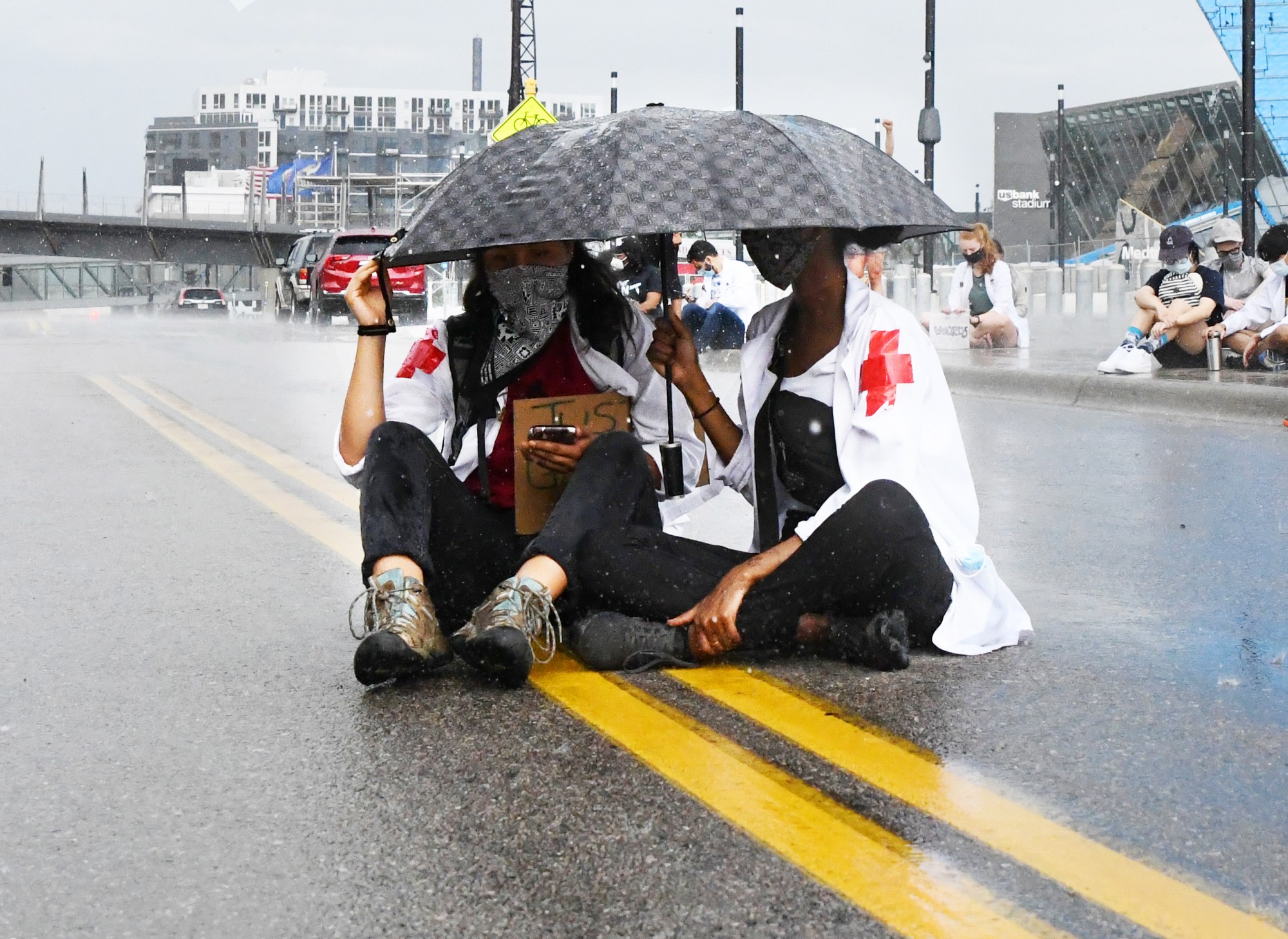University of Minnesota medical students have donned their white coats and emerged to provide vital frontline assistance in the continued protests in Minneapolis.
Several University medical student groups have a history with activism, both on campus and nationally. Many groups have played a significant role in offering aid to injured protesters, coordinating other relief efforts and organizing multiple protests throughout the Twin Cities.
Groups have also called on local leaders to make changes, sending a letter — which included 385 signatures from current medical students, alumni and resident physicians — to University administration and co-writing another letter to Minnesota policymakers.
White Coats for Black Lives
The University’s chapter of White Coats for Black Lives has been dedicated to combating racism and implicit bias in medicine since 2014. Usually the group focuses on curriculum and working with the administration to make changes, but members took to the streets in Minneapolis and St. Paul last week to protest and provide aid to injured protesters in medical tents.
“A lot of us have been advocating for a lot of changes for a really long time,” said WCBL member Reme Abulu. “We felt like we wanted to use George Floyd’s death as a catalyst for change on our end, and we wanted to make sure we can do what we can as providers to reduce and eventually eliminate inequities in health. … We felt like [structural racism is] really what allowed George Floyd to be killed.”
WCBL helped organize multiple protests in the Twin Cities, including a demonstration outside the Hennepin County medical examiner’s office on Tuesday.
Abulu said the group felt compelled to organize due to the controversial preliminary autopsy report, which she said members felt was used to weaponize and discredit those mourning the killing of George Floyd.
“At the end of the day, the words that we as healthcare providers use carry a lot of power, and people really take that at face value,” Abulu said.

Multiple organizers connected their own identities to the movement and felt an obligation to help as healthcare professionals.
“[Police brutality and racism] not only affects our patients but — especially as a Black medical student and future doctor — I know that as soon as I’m not affiliated with the medical school, if I don’t have a white coat on, I’m just as fair game as Sandra Bland or Breonna Taylor. There’s not much separating me,” said WCBL president Dominique Earland, who was a medic in a tent that was attacked by law enforcement May 29.
Earland said these issues have hit home for her, pointing to the apprehension of her cousin Dr. Armen Henderson in Miami earlier this year. She said that as she has moved around the country, it feels like she is followed by a “never-ending list of names” of Black people killed by the police wherever she is.
“I don’t know how many more we have to add,” Earland said. “I was just reflecting on the fact that it’s been six years since Eric Garner said the same words as George Floyd before he was murdered. And I just don’t know how we can just sit by the sidelines anymore.”
Latino Medical Student Association
The University chapter of the Latino Medical Student Association is no stranger to mobilizing on national issues, having organized demonstrations for better conditions at detention centers late last year.
LMSA has primarily been distributing resources and lending aid as medics on the front lines.
“There’s really a lot of love,” said group president Edith Hernandez. “I think a lot of us were kind of bogged down in showing the injustices that we don’t really show how the community is coming together.”
Hernandez echoed the importance of the role that community is playing right now in the cities. She said the combination of massive anti-racism education efforts and solidarity from some National Guard members was very much something that deserved more attention.
She also spoke about her status as a Latina ally.
“I hadn’t really understood what a minority was until I moved to Baltimore and I lived in a mostly Black community,” she said. “It was a shock to me, and there were definitely a lot of things I had to learn, but the Black community kind of opened their arms and it was a very beautiful experience because they were willing to teach me when I stumbled … I speak with them, I stand with them and I will defend them. And even though there was a lot of pushback, and there was a lot of doubt, I definitely will make sure to defend the community that took me in in Baltimore.”
















